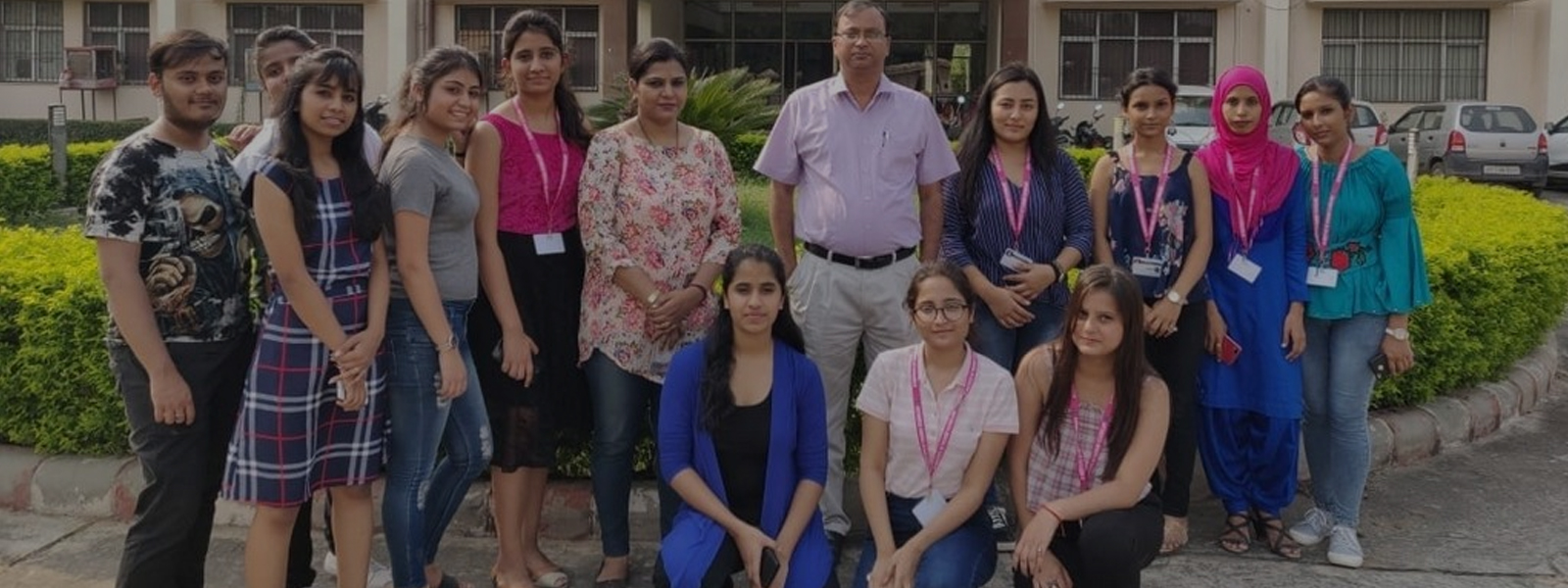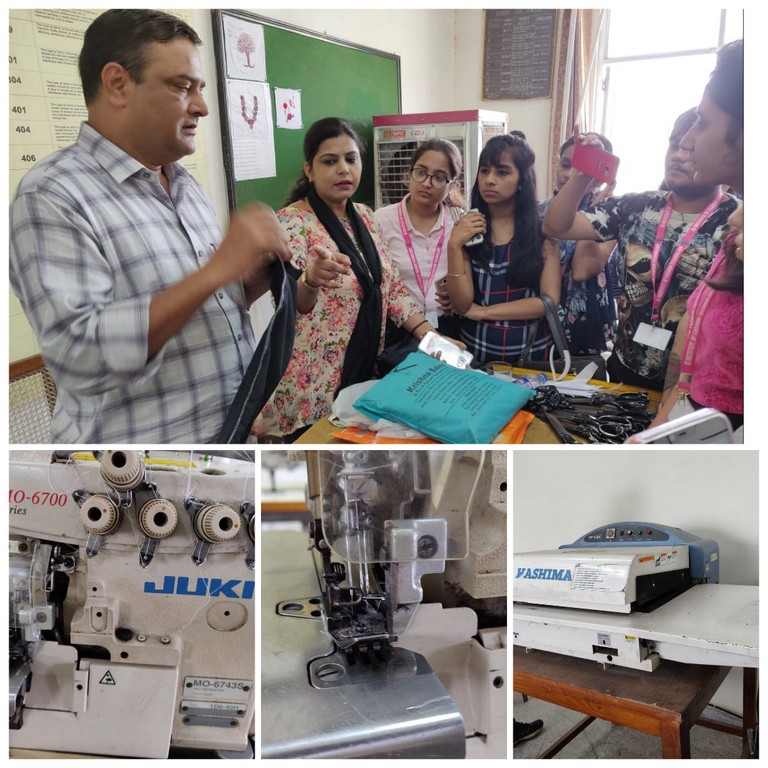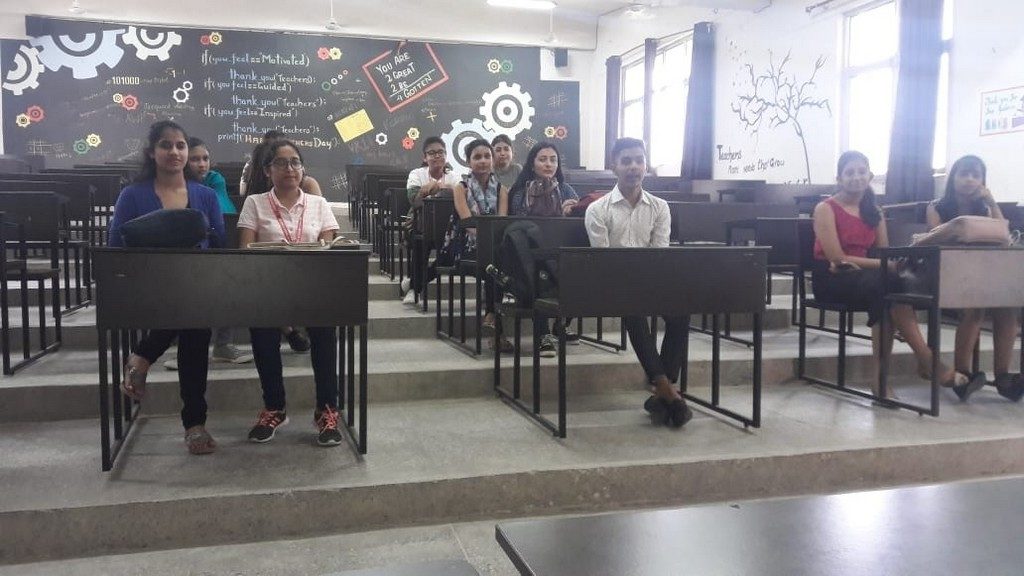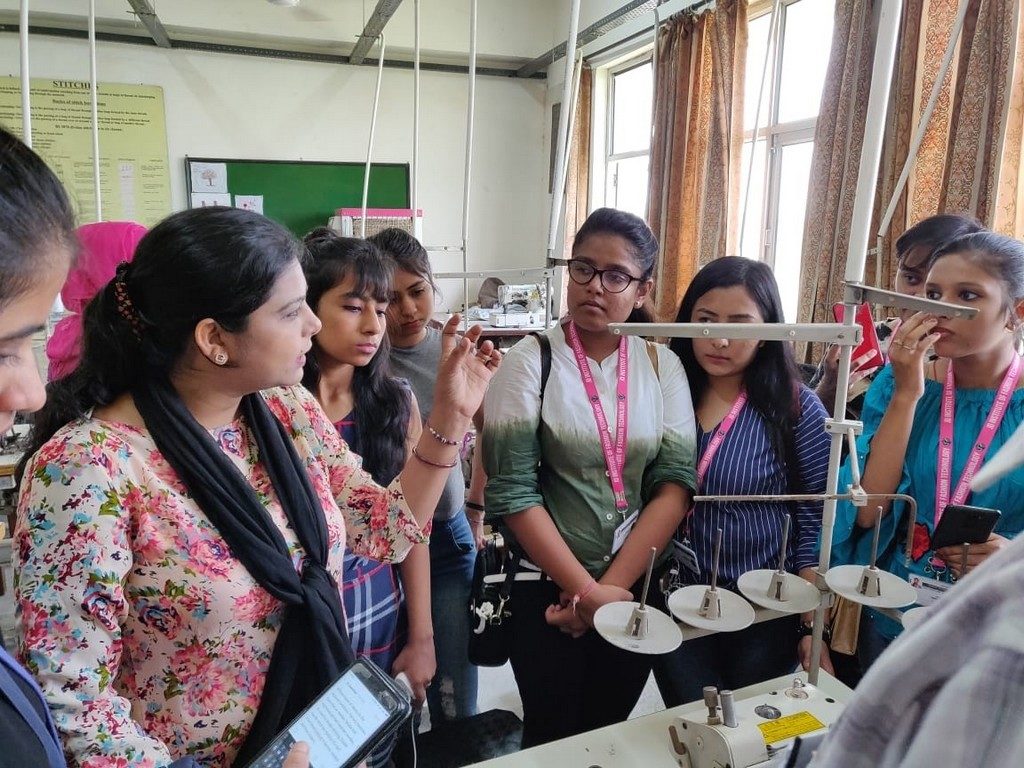

JD Institute of Fashion Technology is continuously striving to shift from a textbook- based learning to experiential and industry-focused learning. With this aim in mind, our faculty members are now conducting lectures at places where the students can practically see what they are studying.
One such endeavour was our first semester students’ visit to Northern India Textile Research Institute- NITRA. It is one of the four textile research associations which were established in the year 1974 (44 years ago) to conduct scientific research in the field of textiles.
NITRA renders multifarious services to textile & apparel industry through its rich in-house manpower resource of more than fifty experienced technical personnel comprising of textile technologist, textile chemist, garment technologist, textile designer, fashion designer, analytical chemist, mechanical engineer, electrical & electronics engineer, civil engineer, environmental engineer, software / IT specialist & management experts. This team of scientists, consultants, and technocrats is supported by the most modern and state-of-the-art infrastructure facilities available at NITRA. NITRA’s prime activities include research & development, technical consultancy, quality evaluation of materials, manpower training and publishing technical books and papers.

Objective of an industrial lecture at Nitra was to provide information to students about different types of machinery used in garment industry like Single Needle Lock Stitch, Double Needle Lock Stitch, 4-thread overlock, 5-thread flatlock, Button –holing and buttoning machines, Feed-of-the-arm machine, UBT, Back tack and bar tack machines and many more.

Students saw practical demonstrations on the machines to understand their working, applications and manipulations. They got better guidance from the industry experts who explained in detail and answered all the queries of the students.

Students got very inspired as they could relate the industrial purpose of their Garment Manufacturing Technology syllabus. The session was interesting and interactive, adding to a positive learning experience. Such sessions are possible only because of the futuristic vision of the leaders whose beliefs, actions and values are aligned with the requirements of the industry.